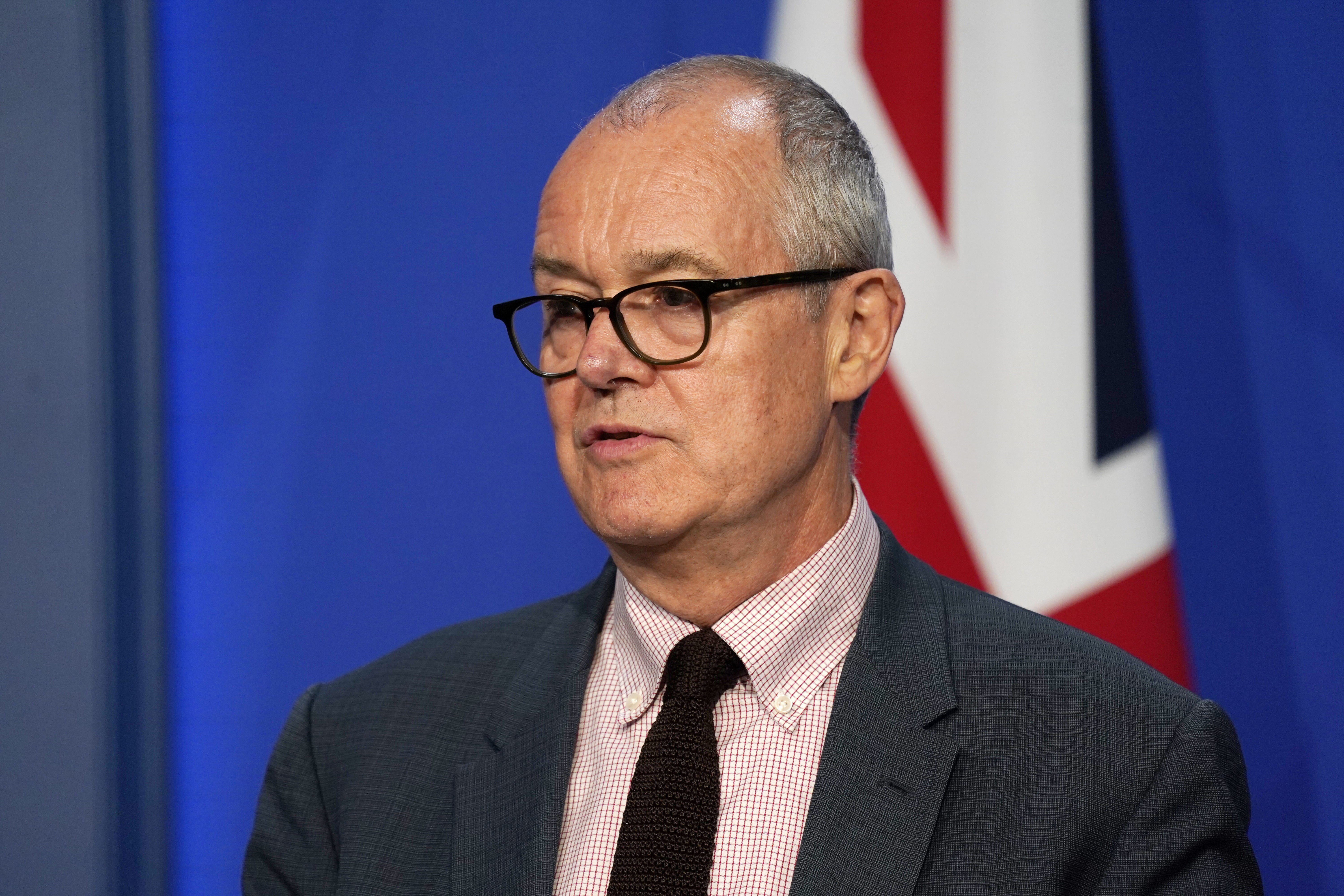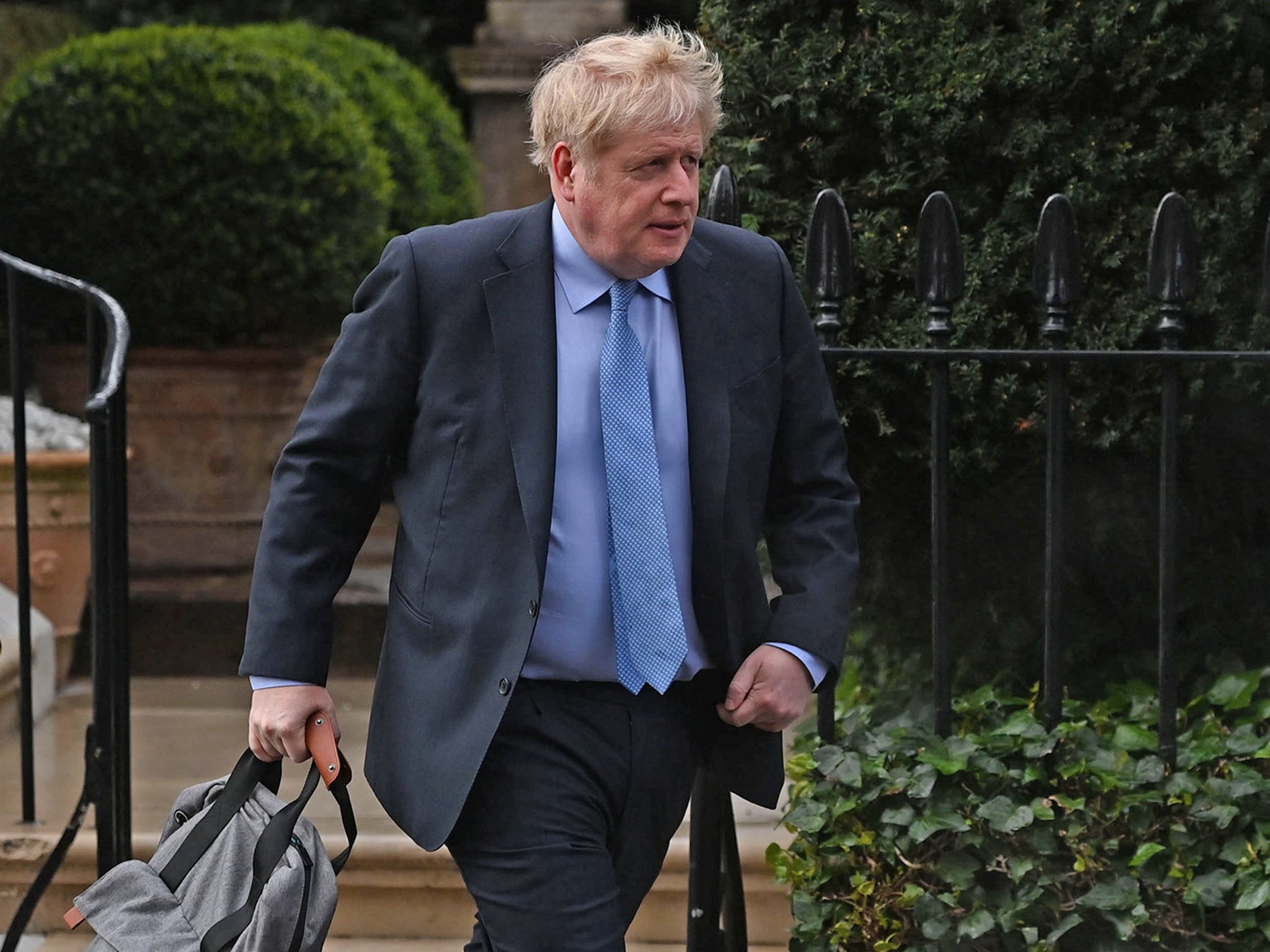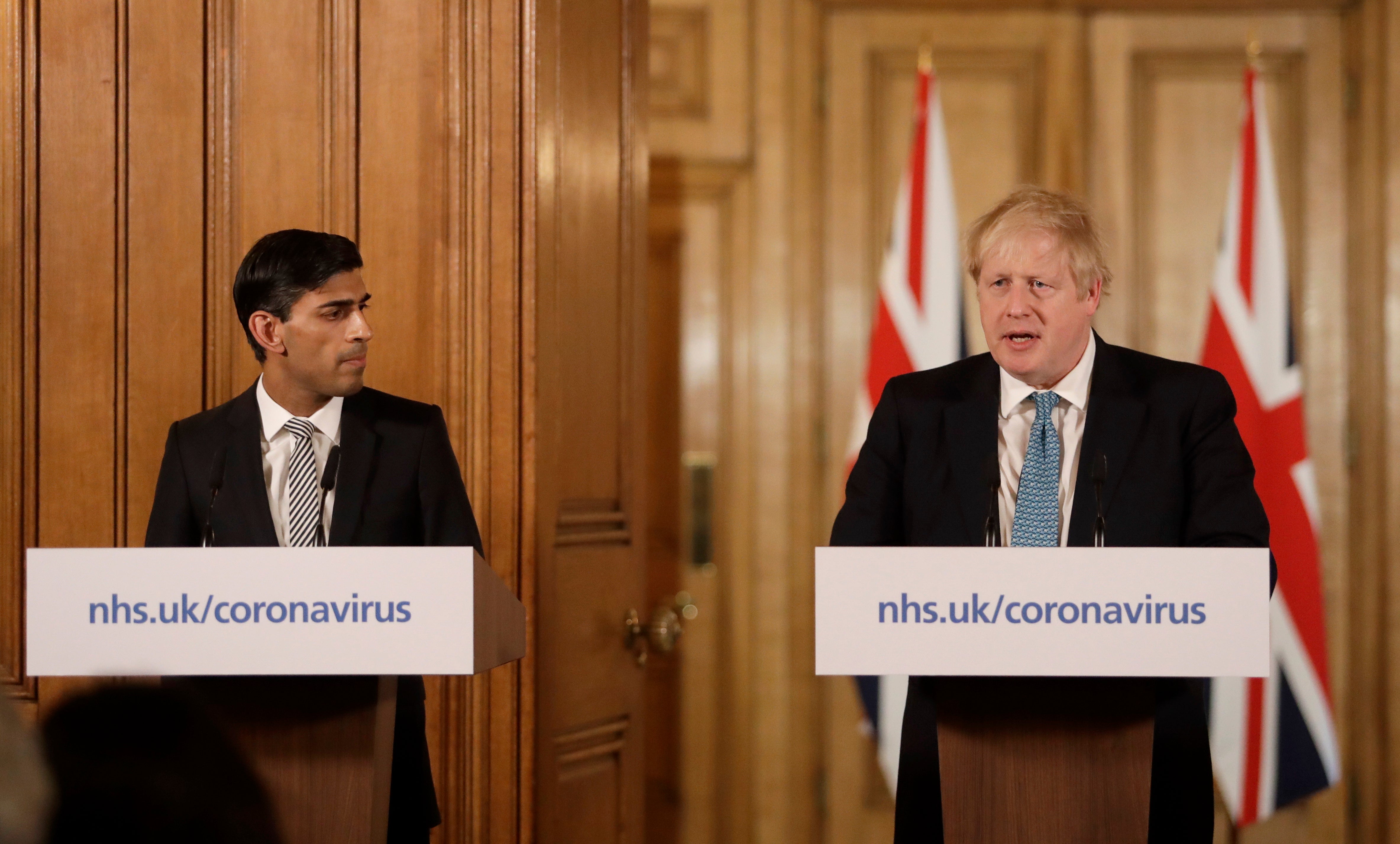Boris Johnson’s decision-making over Covid was ‘bipolar’, Sir Patrick Vallance warned
The former PM was accused of failing to lead the country in the early days of the pandemic, the UK Covid Inquiry was told
Your support helps us to tell the story
From reproductive rights to climate change to Big Tech, The Independent is on the ground when the story is developing. Whether it's investigating the financials of Elon Musk's pro-Trump PAC or producing our latest documentary, 'The A Word', which shines a light on the American women fighting for reproductive rights, we know how important it is to parse out the facts from the messaging.
At such a critical moment in US history, we need reporters on the ground. Your donation allows us to keep sending journalists to speak to both sides of the story.
The Independent is trusted by Americans across the entire political spectrum. And unlike many other quality news outlets, we choose not to lock Americans out of our reporting and analysis with paywalls. We believe quality journalism should be available to everyone, paid for by those who can afford it.
Your support makes all the difference.The former prime minister Boris Johnson had “bipolar decision-making” during the Covid lockdown and was “dismissive of disaster”, an inquiry heard on Tuesday.
Mr Johnson was also accused of failing to lead the country in the early days of the crisis, the UK Covid Inquiry was told.
Diary entries by Sir Patrick Vallance were read out on Tuesday, in which the government’s former chief scientific adviser criticised Mr Johnson’s “impossible flip-flopping” and “bipolar decision-making” – writing of “chaos as usual” in Downing Street after a meeting on social-distancing.
As the second part of the inquiry began, the Bereaved Families for Justice group said there was a “leadership void” in the early days of the crisis and accused Mr Johnson of “cavalier” public messaging just weeks before the first lockdown.
And long Covid groups claimed that the former prime minister initially “denied the truth of the suffering” of long Covid patients.
Anthony Metzer KC, speaking on behalf of long Covid groups, told the inquiry: “In October 2020, while the Department of Health and Social Care was publishing guidance on long Covid and called for recognition and support for people with long Covid, then prime minister Boris Johnson scrawled in capitals that long Covid was ‘b*****ks’.
“Mr Johnson has admitted in his witness statement that he didn’t believe long Covid truly existed, dismissing it as ‘Gulf War Syndrome stuff’. The inquiry will be concerned to probe how the former prime minister could possibly hold this view in October 2020.”
He added: “Adults and children were and still are suffering from debilitating, painful and terrifying symptoms for months and now years after infection, and yet Mr Johnson denied the truth of their suffering.
“The UK’s senior most decision-makers were dismissing, diminishing and disbelieving the very existence and risk of long Covid.”
The inquiry’s lead counsel Hugo Keith KC also revealed WhatsApp messages between Boris Johnson, his former chief political aide Dominic Cummings and others, portraying “a depressing picture of a toxic atmosphere” during the pandemic.
The messages also showed “factional infighting and internecine attacks on colleagues”, Mr Keith said. A significant number of messages and diary entries are reported to refer to then-health secretary Matt Hancock.
Mr Keith said: “A text from Simon Case, then a senior civil servant yet to become cabinet secretary to [former health secretary] Matt Hancock on the 29 April reads: ‘The Cabinet Office is a totally dysfunctional mess at present, so not a great place to be’.”
But the inquiry also heard that key WhatsApp messages by the then-prime minister from 31 January to 7 June 2020 are “unrecoverable”.
The loss of these messages is a “remarkable and unfortunate coincidence”, lawyer Peter Weatherby KC, for Covid-19 Bereaved Families for Justice, told the inquiry.
Mr Weatherby called for experts to examine the phone to see whether the messages could be retrieved “and whether they might have been deleted”.
“Mr Johnson claims that although he’s downloaded the phone, the WhatsApp messaging from the crucial period of the January 31 to June 7 2020 are unrecoverable,” Mr Weatherby said.
“A remarkable and unfortunate coincidence, we would say. We would urge the inquiry to commission experts to see why those messages can’t be retrieved and whether they may have been deleted.”

His notes reportedly read: “On Friday, the two-metre rule meeting made it abundantly clear that no-one in Number 10 or the Cabinet Office had really read or taken time to understand the science advice on two metres. Quite extraordinary.”
The notes also alleged faction fighting within No 10 involving Michael Gove and also Mr Johnson’s wife, Carrie.
In other entries, Sir Patrick reportedly said he felt scientists were “used as human shields” by ministers. On 19 September 2020, he wrote: “[Johnson] is all over the place and so completely inconsistent. You can see why it was so difficult to get agreement to lock down first time.”
Mr Weatherby said that Mr Johnson “failed to take the emerging threat seriously” as he called on the inquiry to consider “whether vital time to form a contingency plan and to act was squandered” and that key preparations may not have taken place “because part of the government was in denial, and others had a false view of its own preparedness”.
The inquiry also heard that a Cobra meeting was briefed on Covid on 29 January – but Mr Johnson was not present.

Mr Weatherby said: “He wasn’t at Cobra for more than another month after until March. He’ll tell us that he properly left things to others but the reality is there was a leadership void.”
He added: “It was two months into the emergency before Mr Johnson attended his first Cobra meeting, March 2, the day before he engaged in what can only be described as cavalier and incredibly unhelpful public messaging when he visited the Royal Free Hospital telling the media: ‘I think there were a few coronavirus patients and I shook hands with everybody, you will be pleased to know, and I continue to shake hands’.
“It’s difficult to see his actions and media comments as nothing other than dismissive of a disaster which had been looming for two months, and was now just around the corner.”
Mr Weatherby also referenced the Eat Out to Help Out scheme. “It appears it was rolled out without any scientific advice,” he said.
“We anticipate that scientists will say their advice would have been strongly against such a hare-brained scheme.
“The inquiry will have to consider whether the government really was following the science, or whether [then chancellor] Mr Sunak’s flagship policy hastened the next wave of infections.”

Mr Johnson, his former chief aide Dominic Cummings, Rishi Sunak, and former health secretary Matt Hancock, are expected to speak at the inqury, along with chief scientific and medical advisers. Hearings are due to continue until 2026, but with interim reports released before that date.
The current hearings relate to the second of four modules into which the inquiry has has been divided: resilience and preparedness; core UK decision-making and political governance; the impact of the pandemic on healthcare; and vaccines and therapeutics.
In his opening statement in June, the inquiry’s lead counsel said the nation was “taken by surprise” by “significant aspects” of the disease that has been recorded on more than 225,000 death certificates.
Mr Keith has suggested that Brexit preparations “crowded out and prevented” the work needed to improve pandemic preparedness, while bereaved families have warned inquiry evidence will likely show “chaos” in government led to a slow reaction to a pandemic where “lost time is measured in lost lives”.





